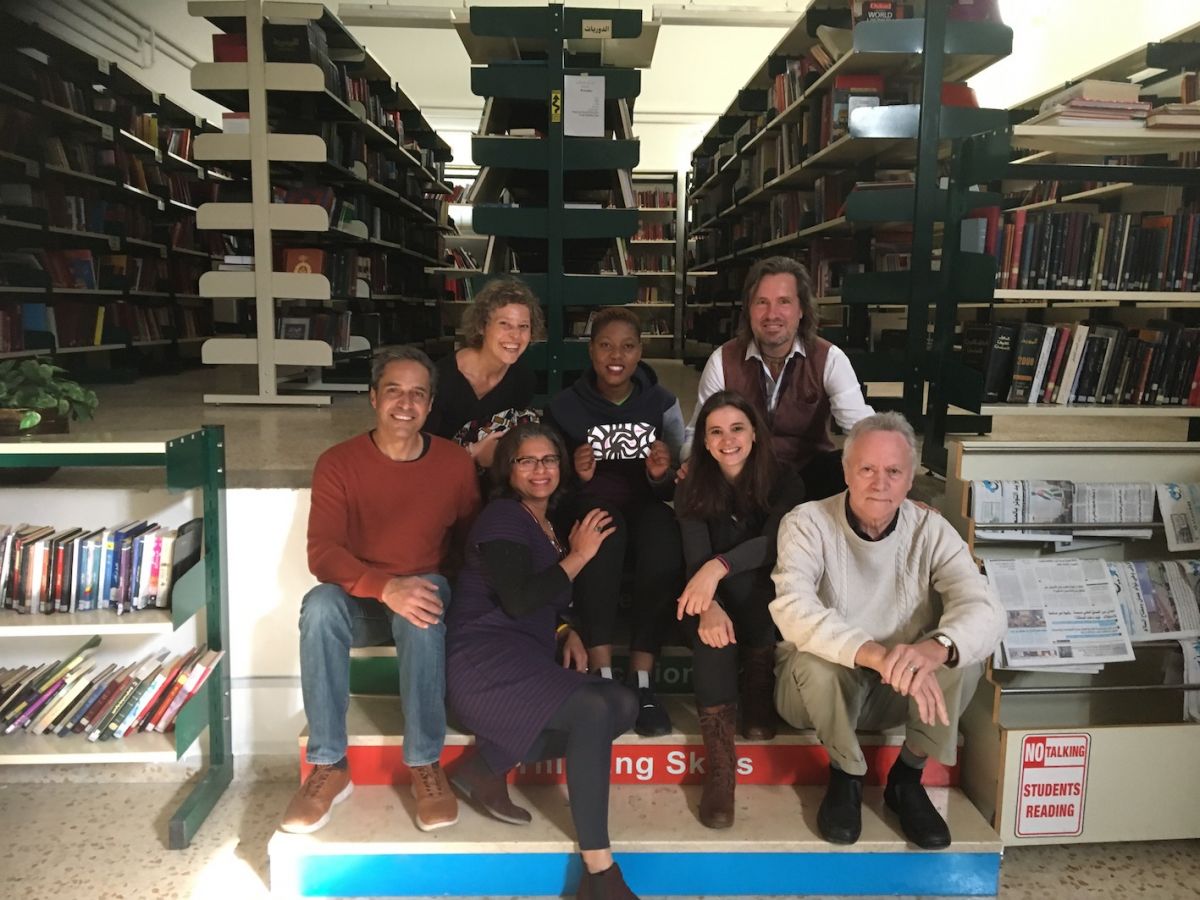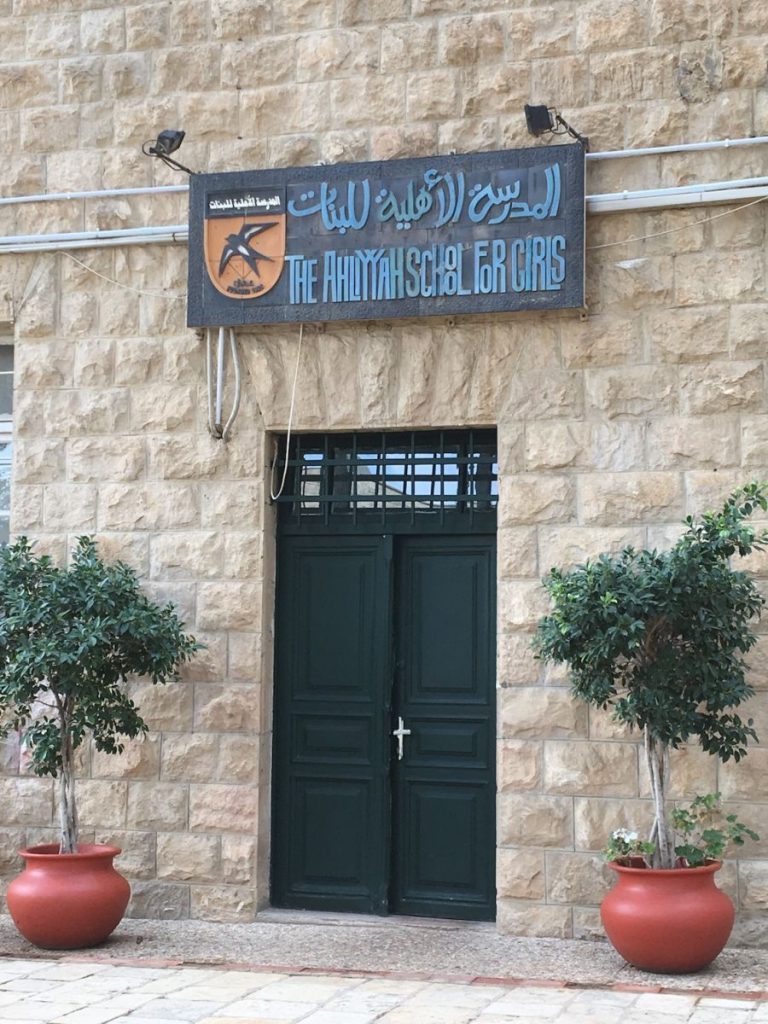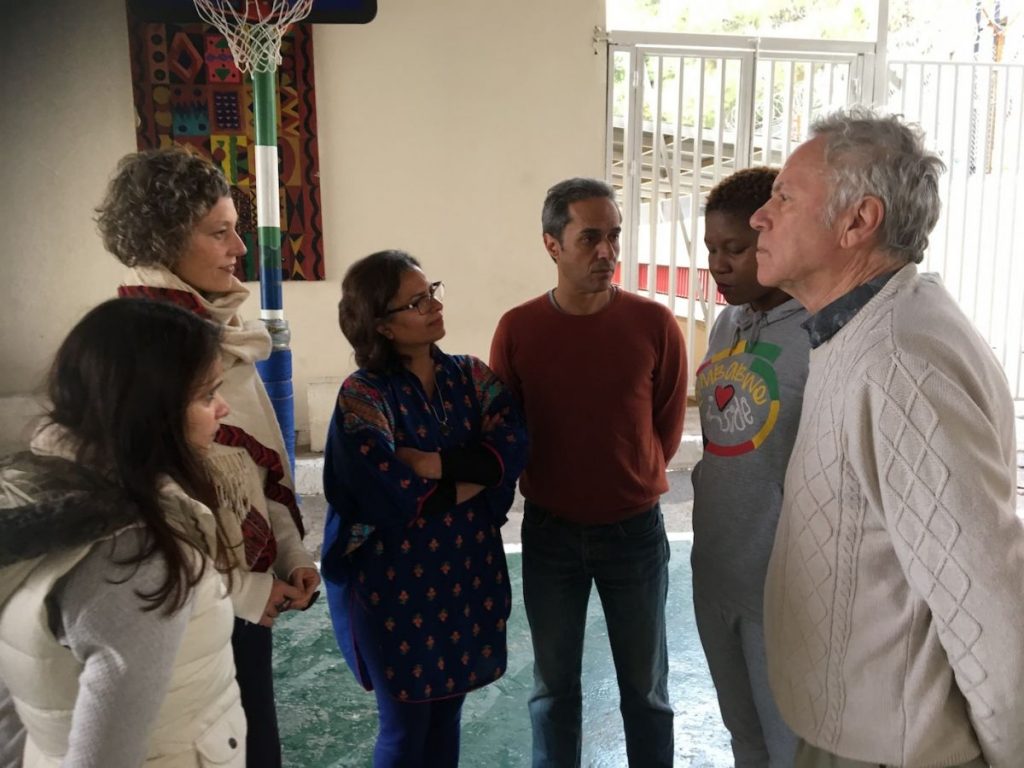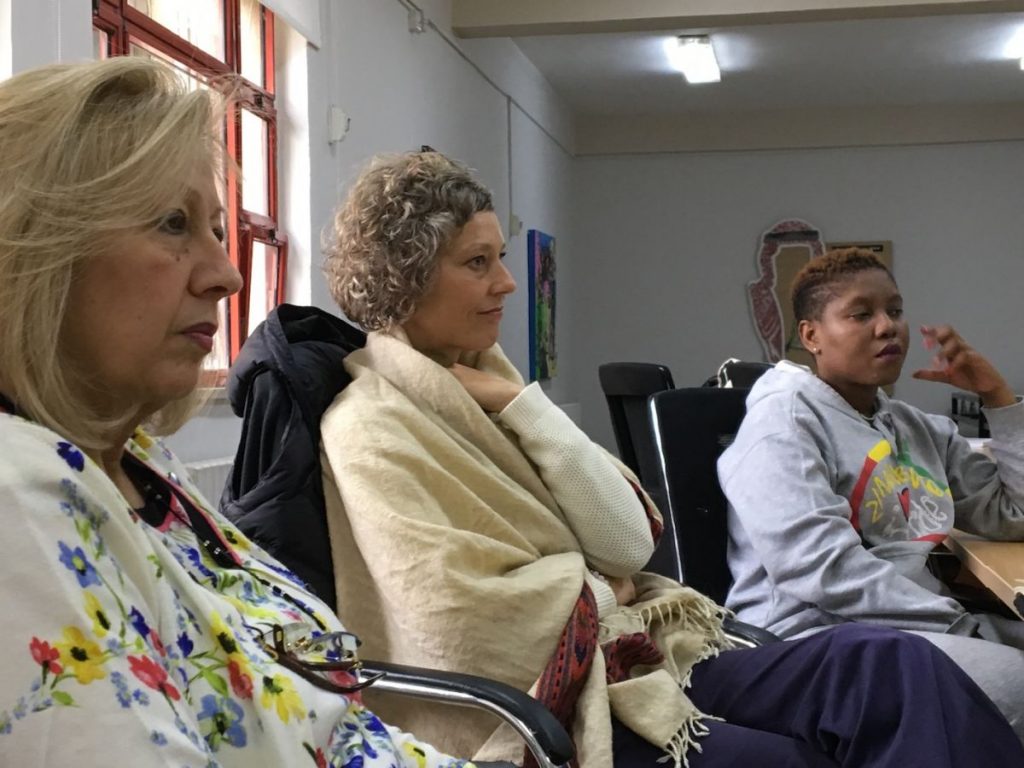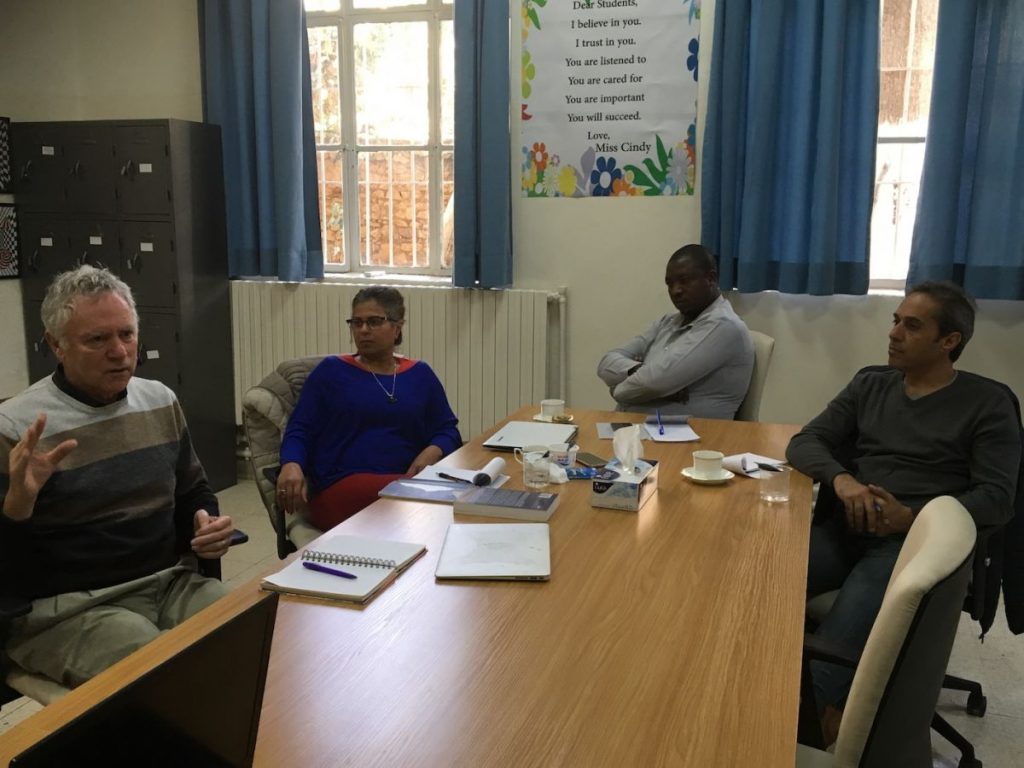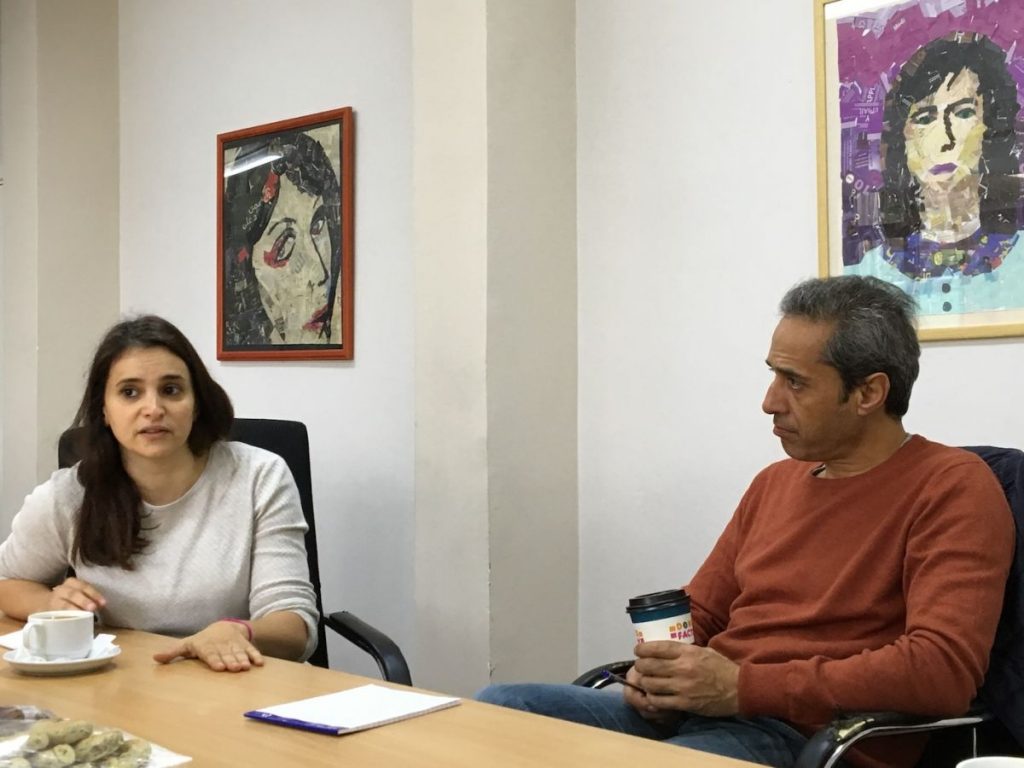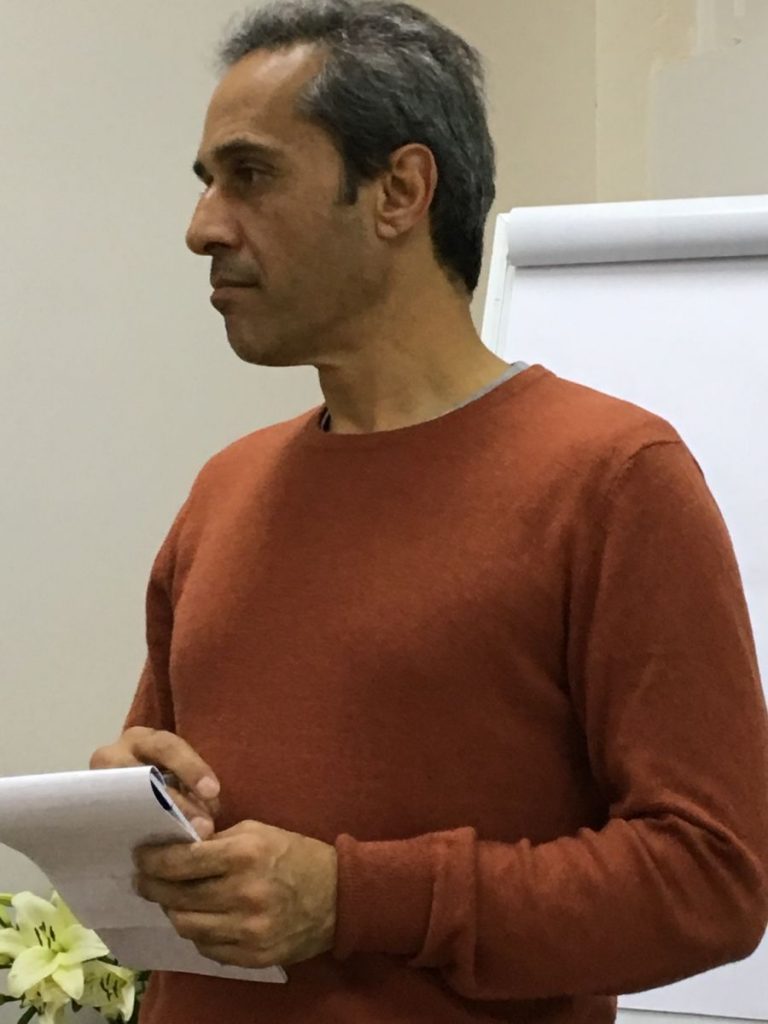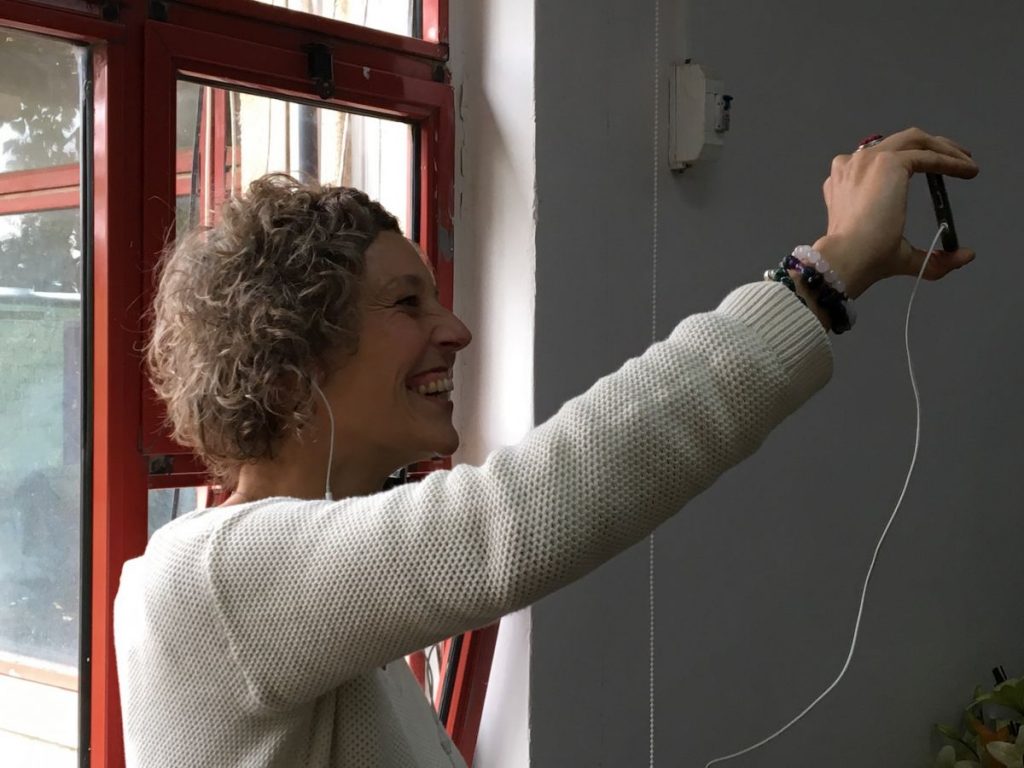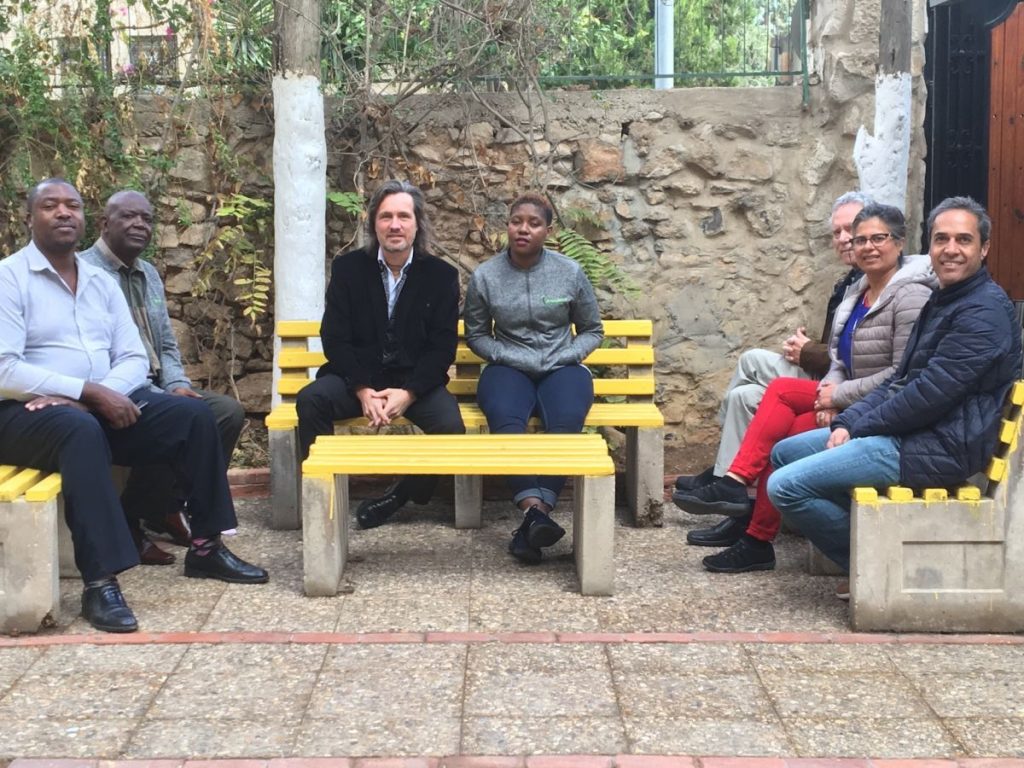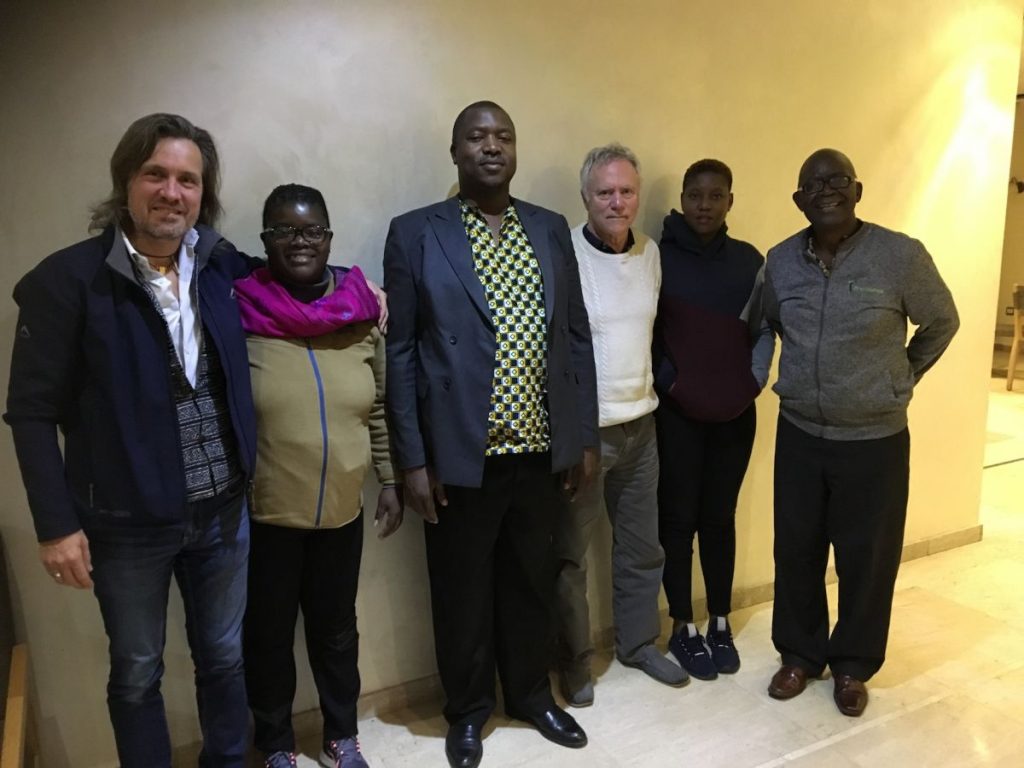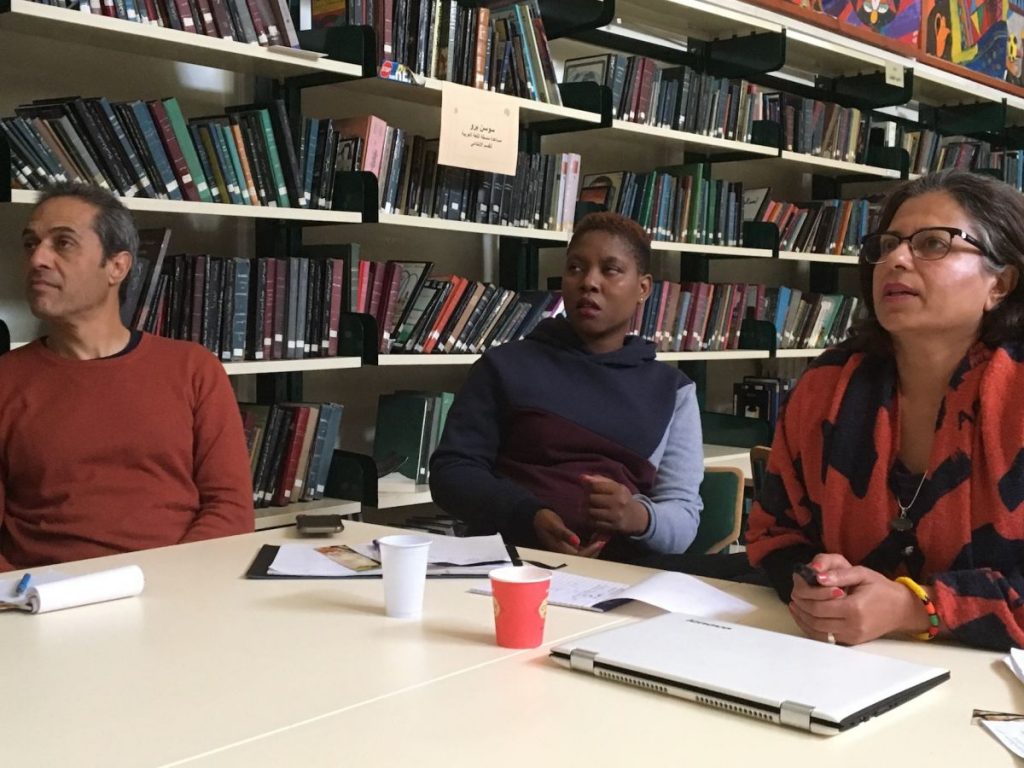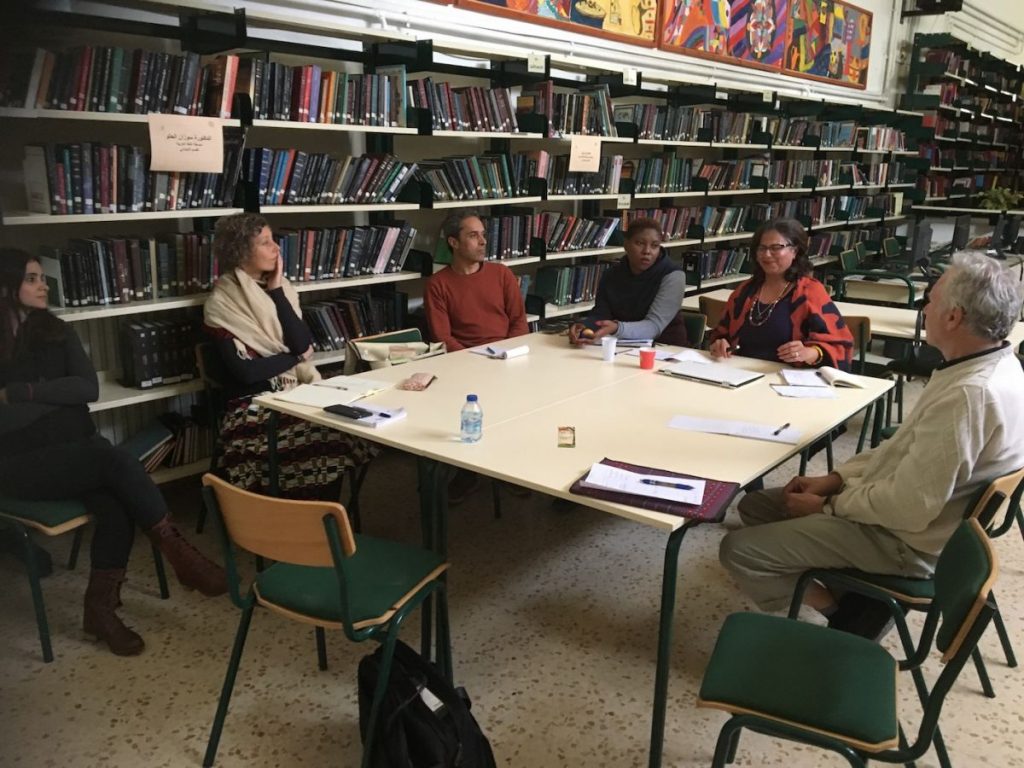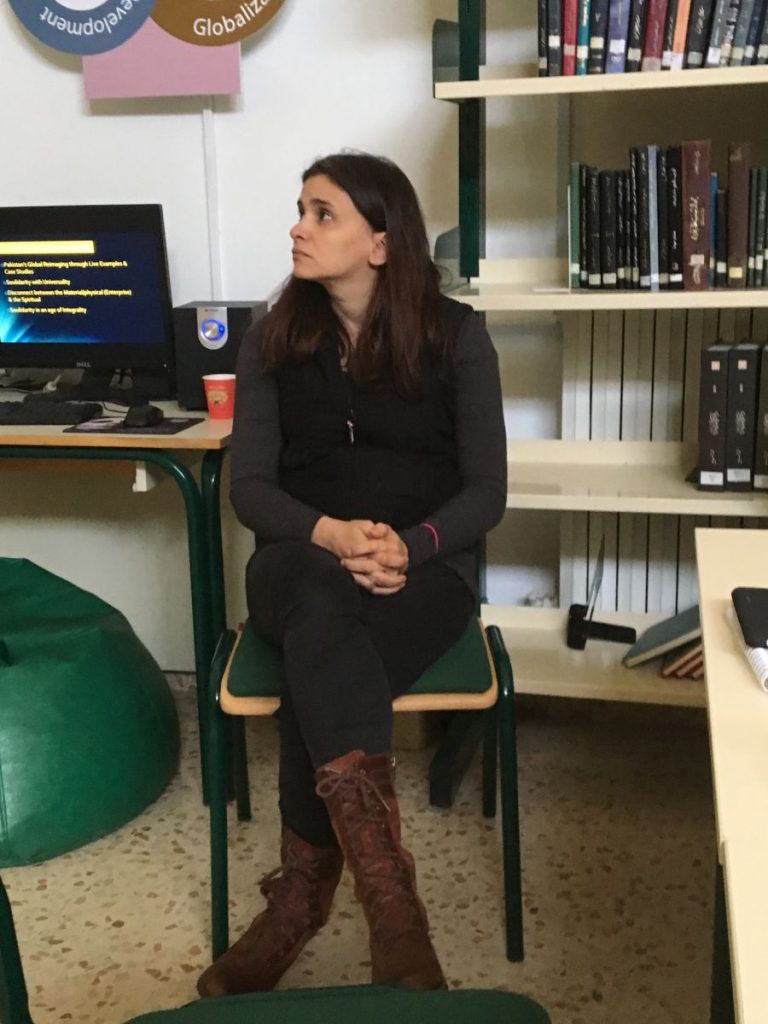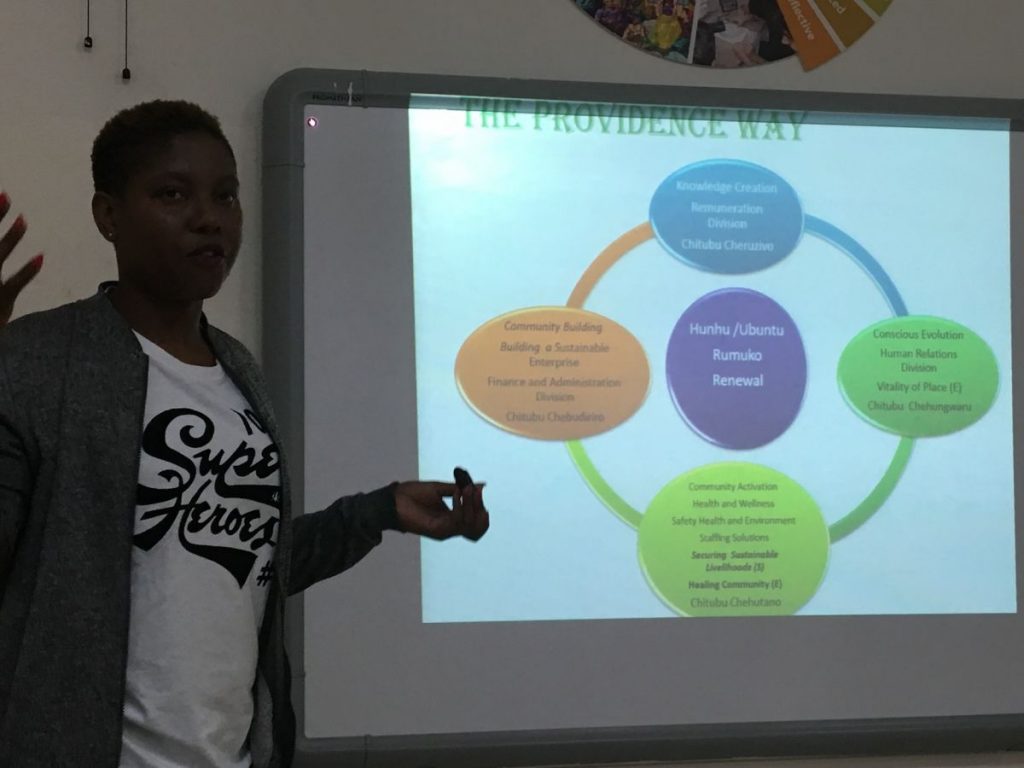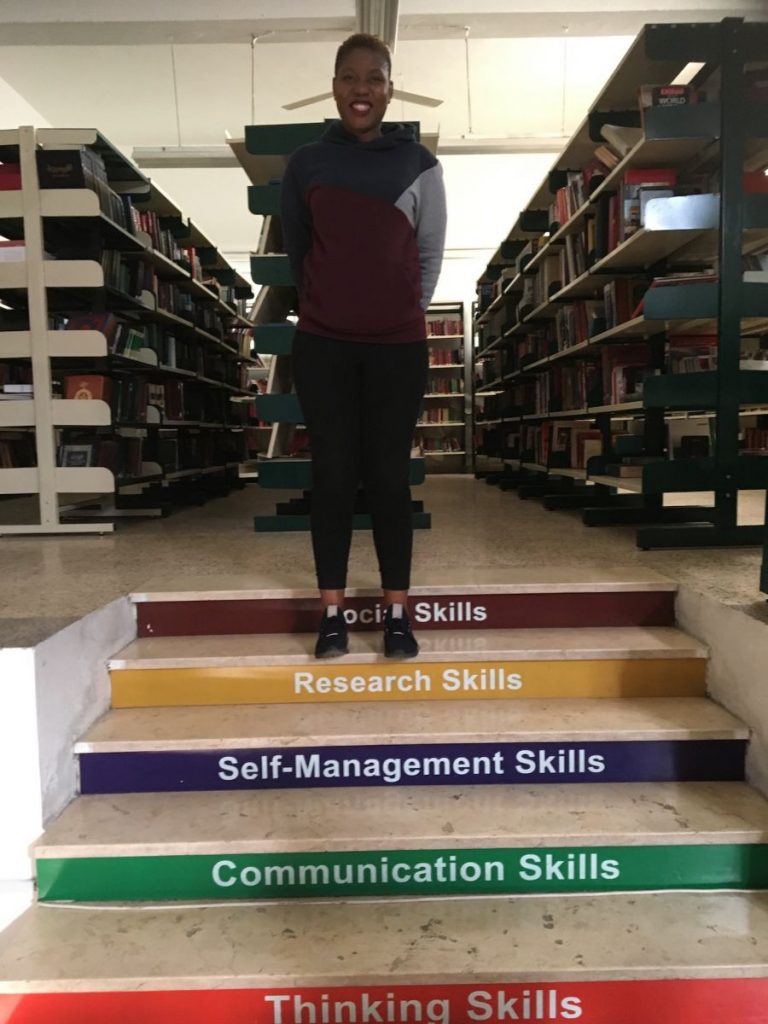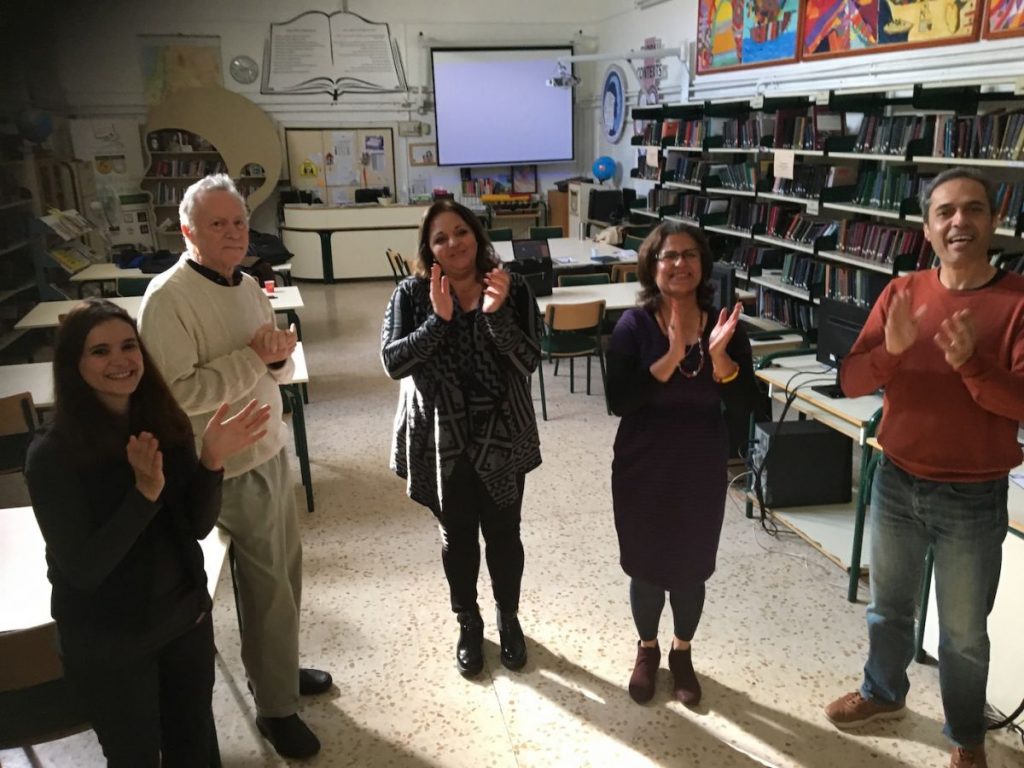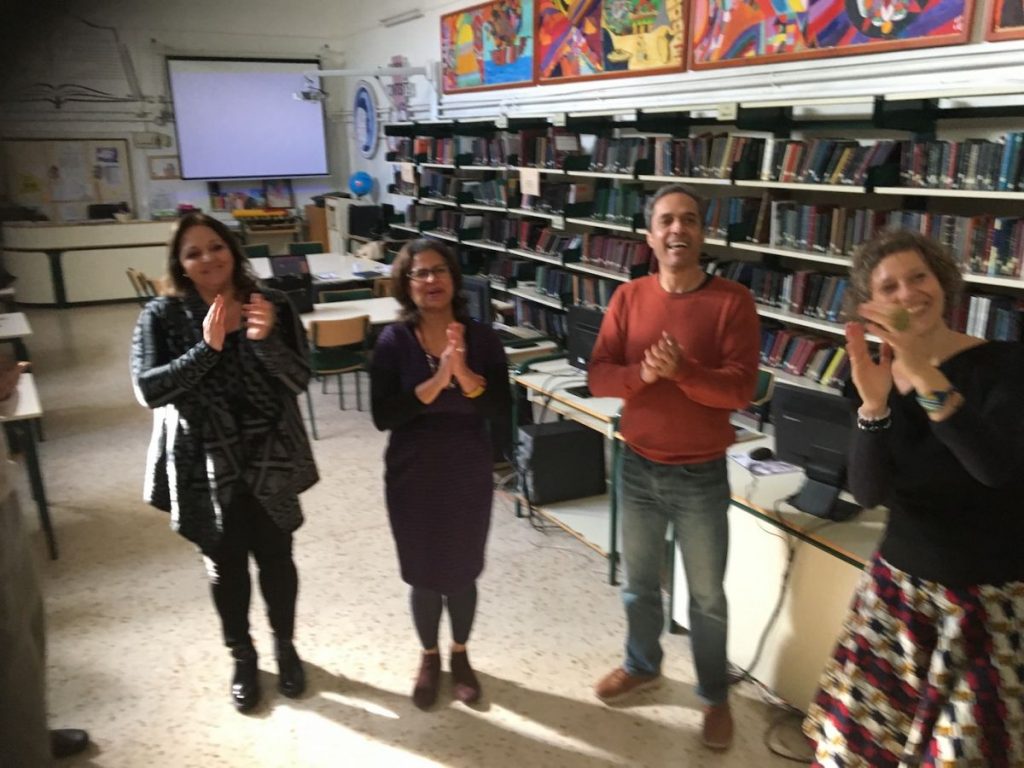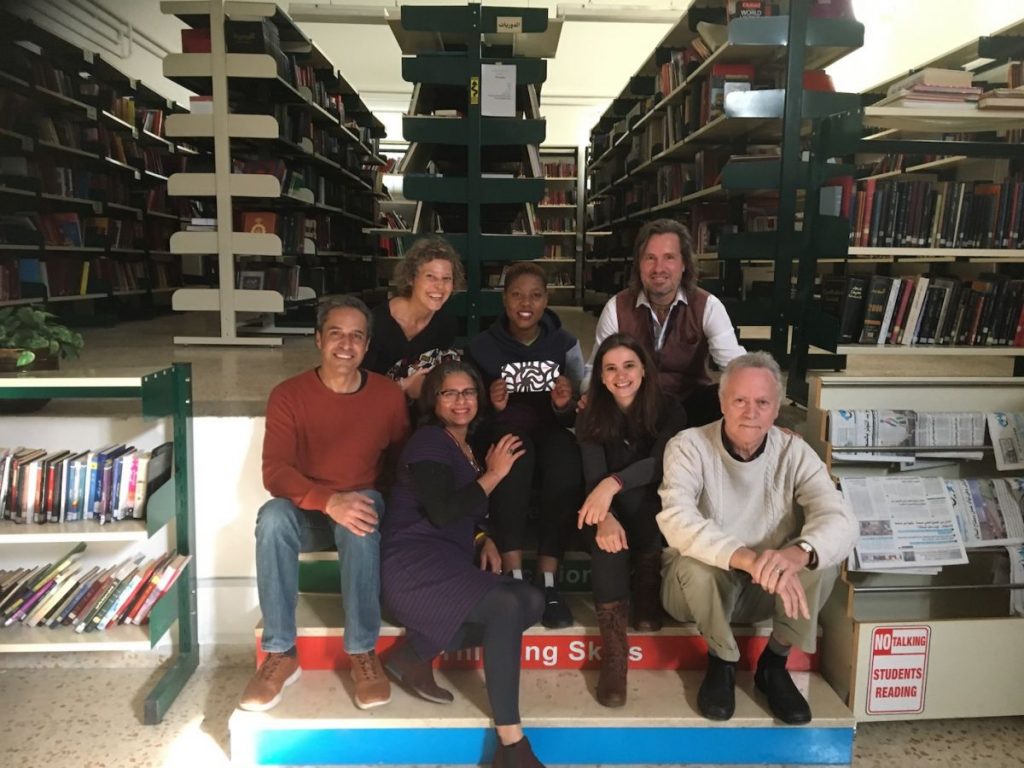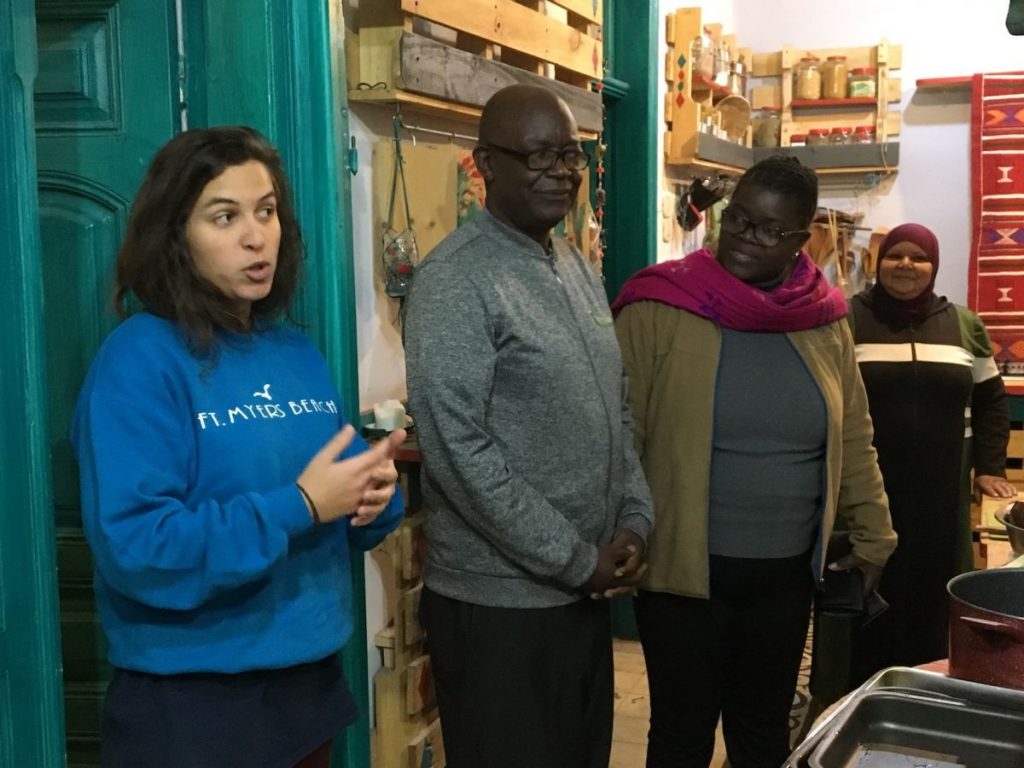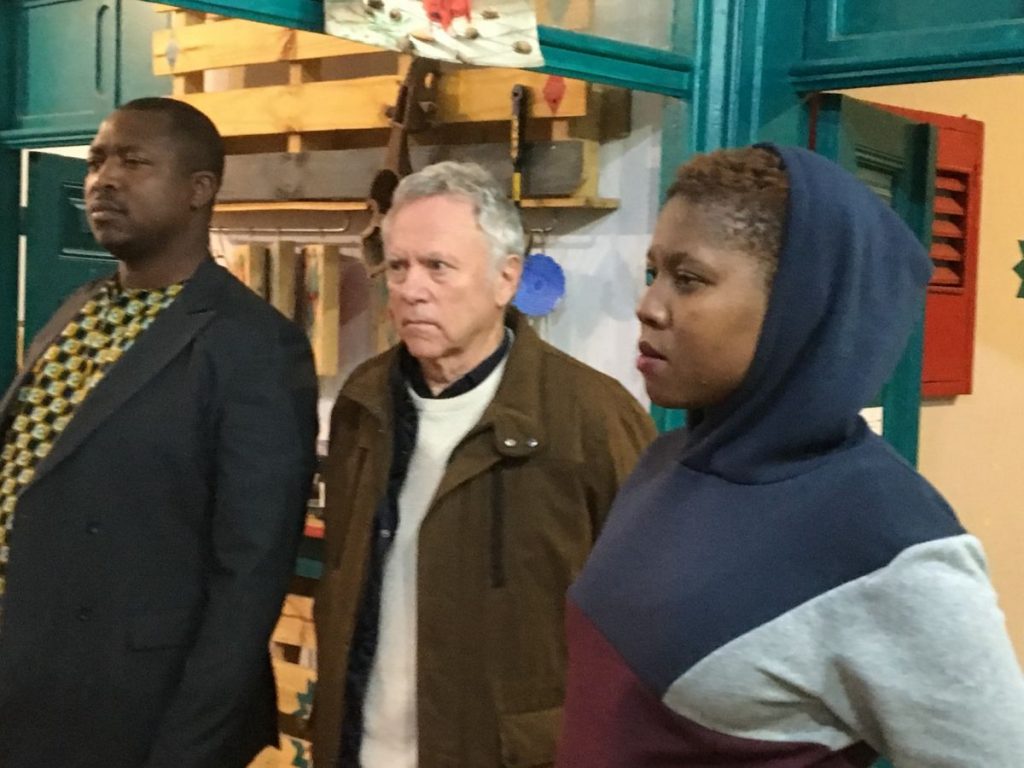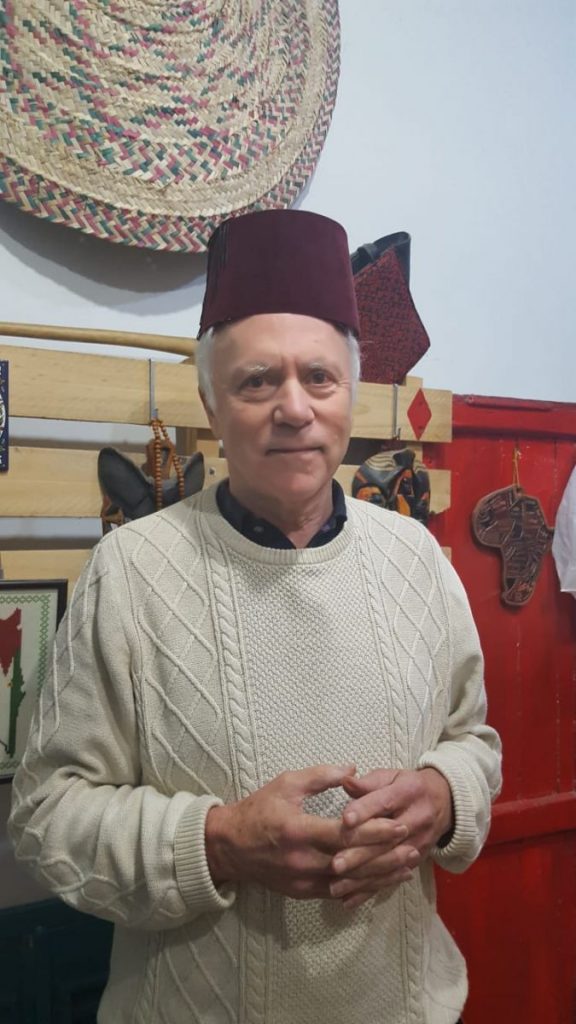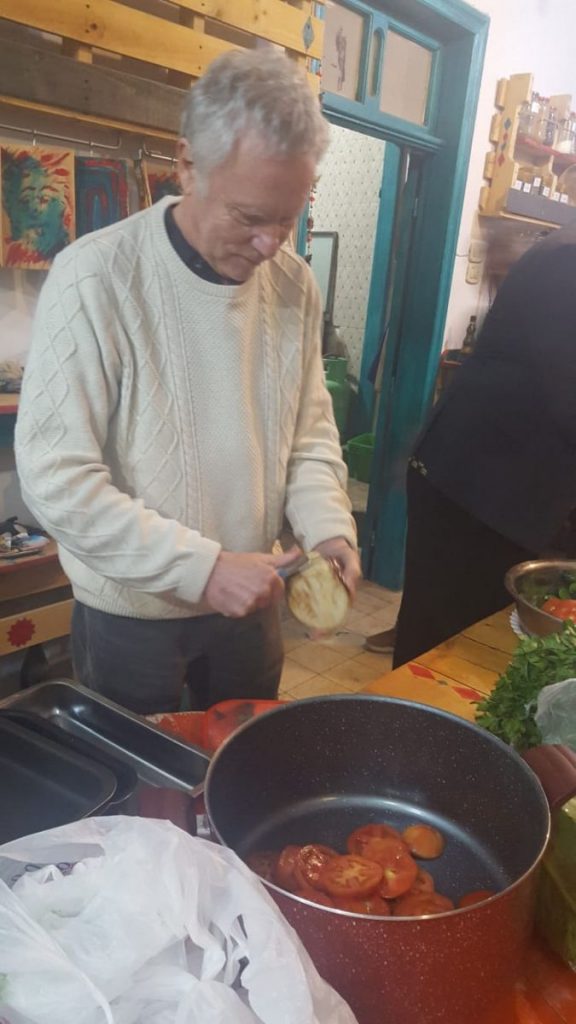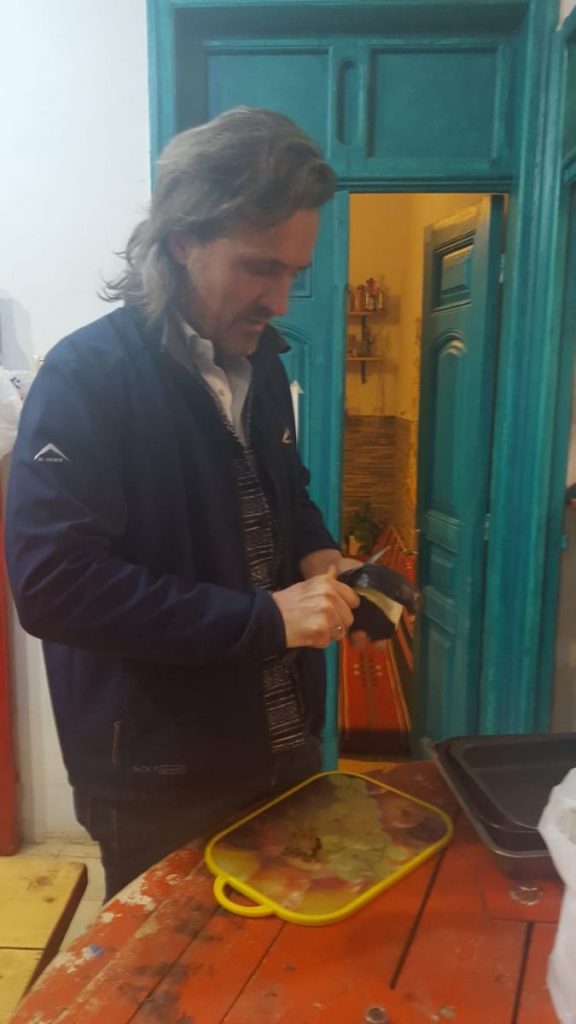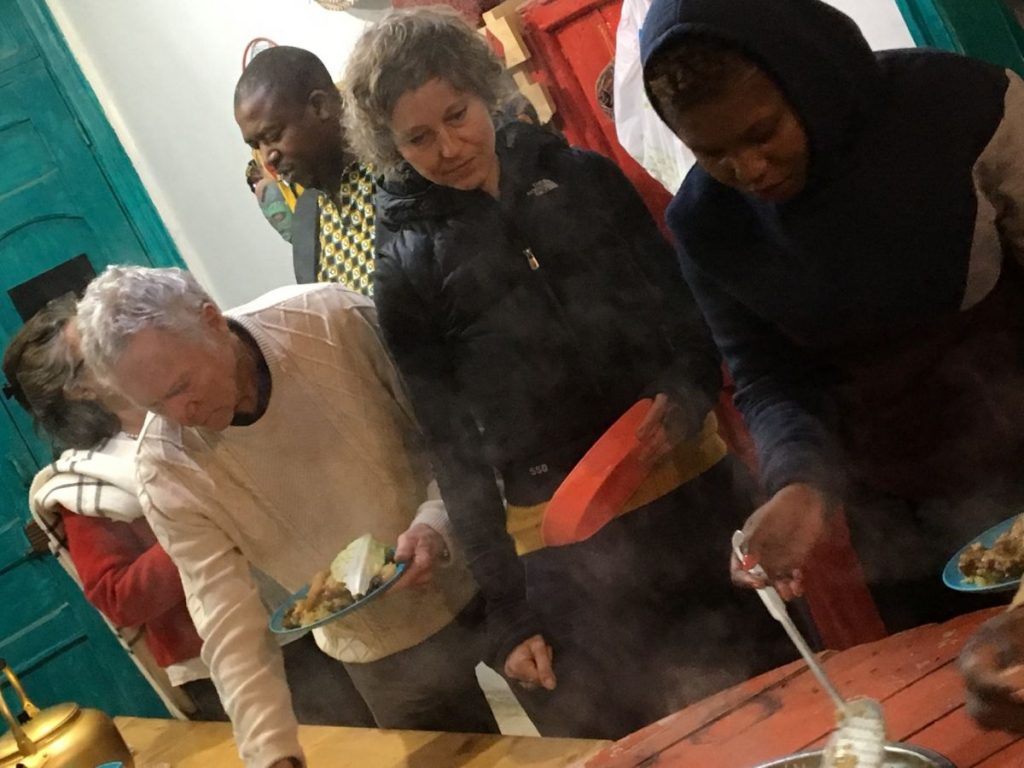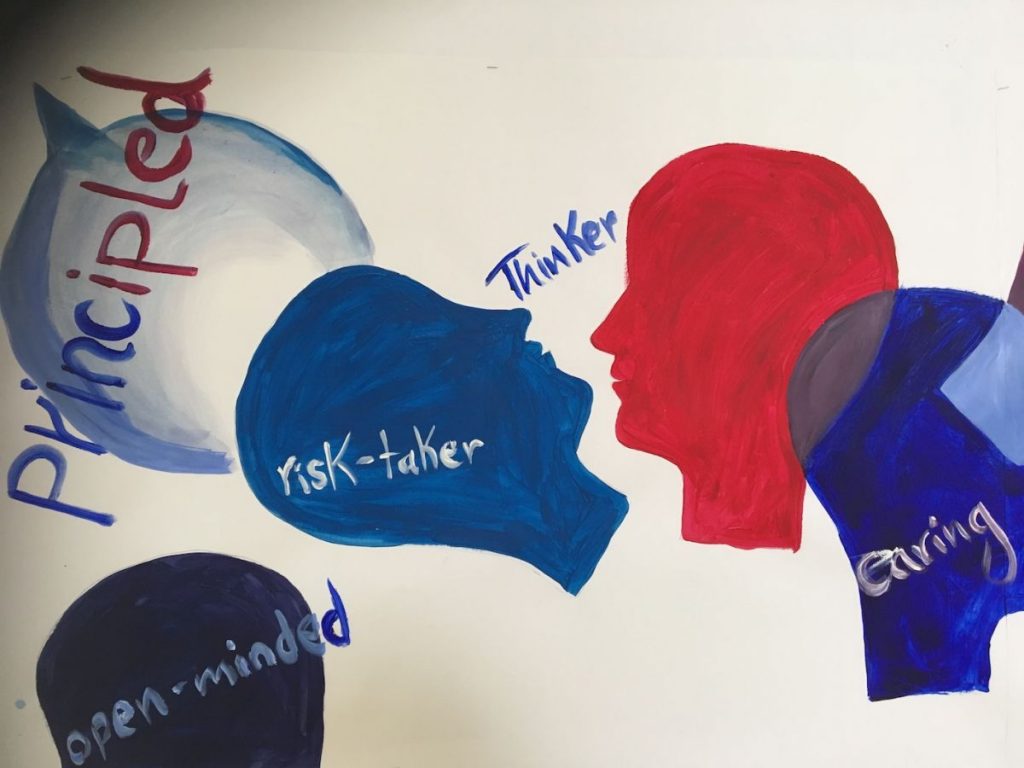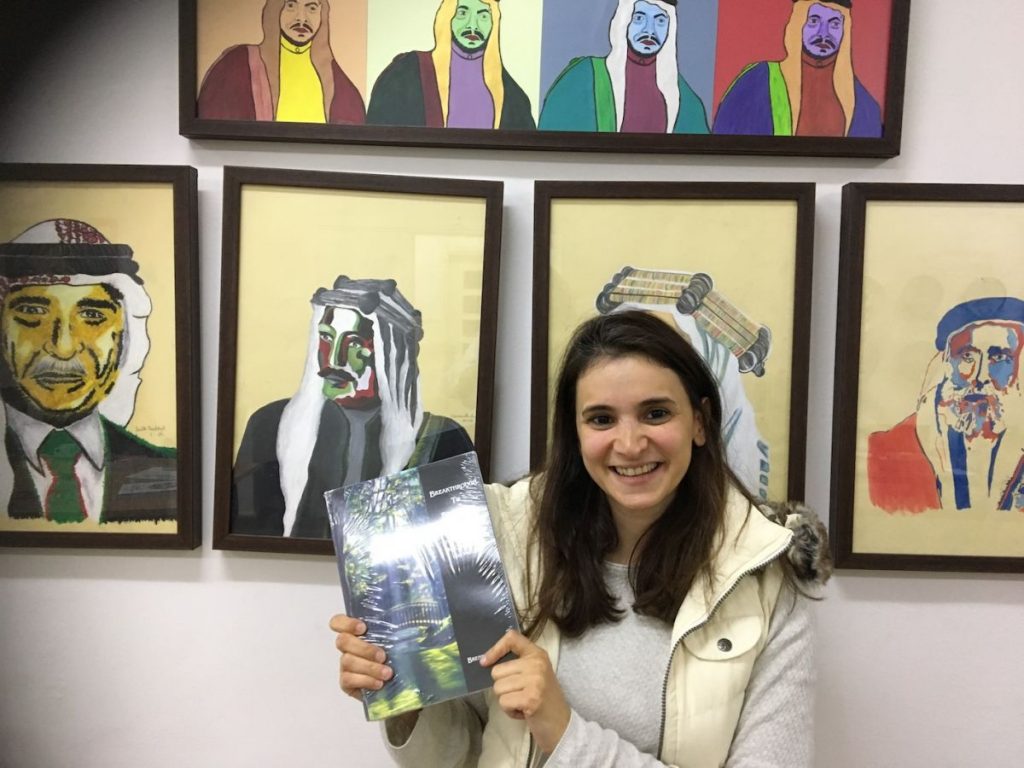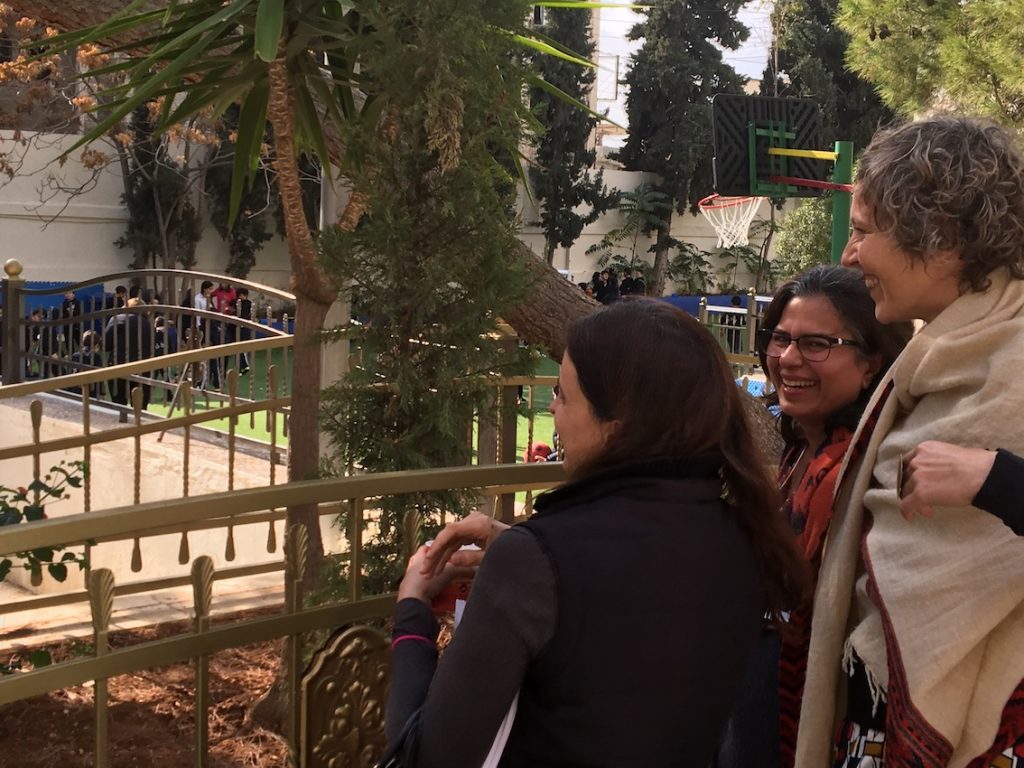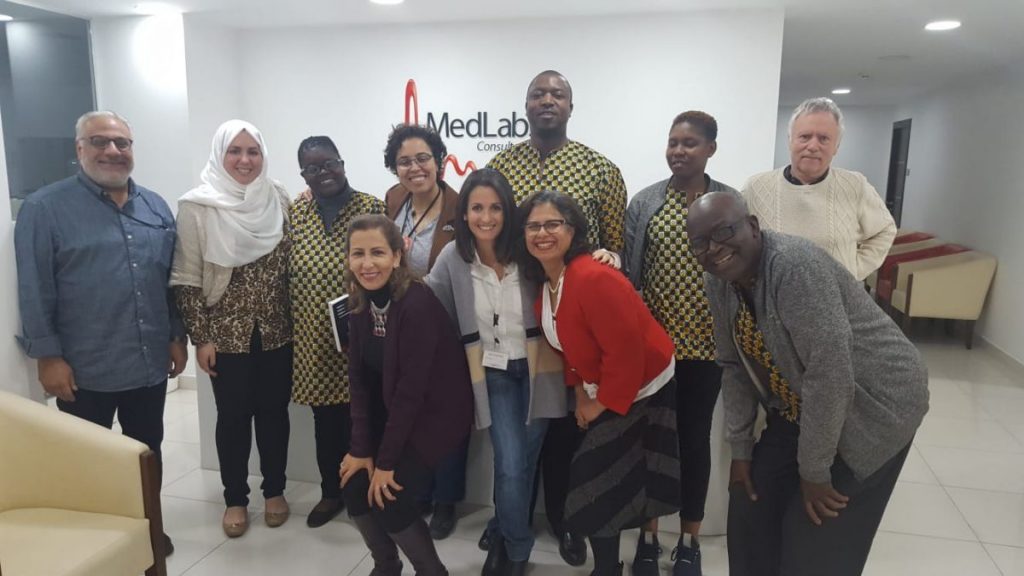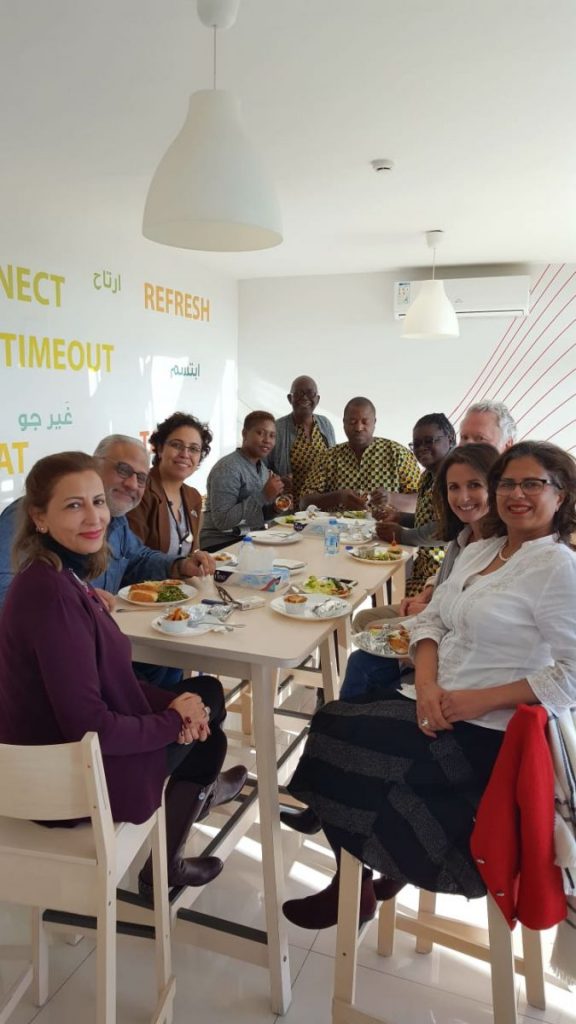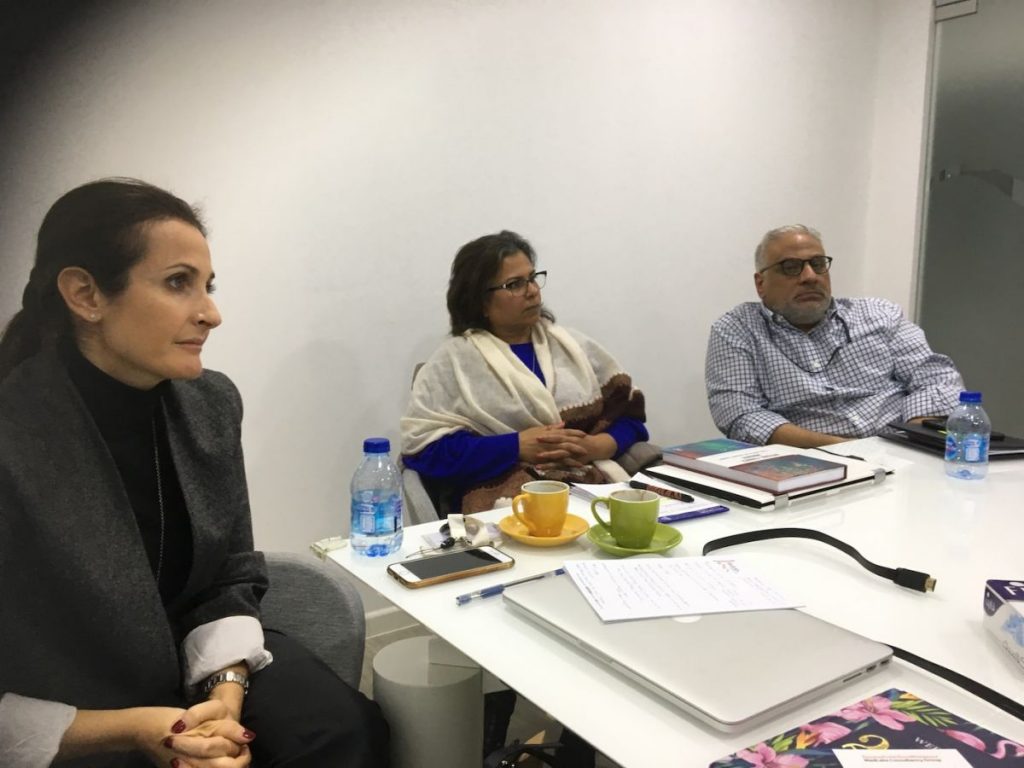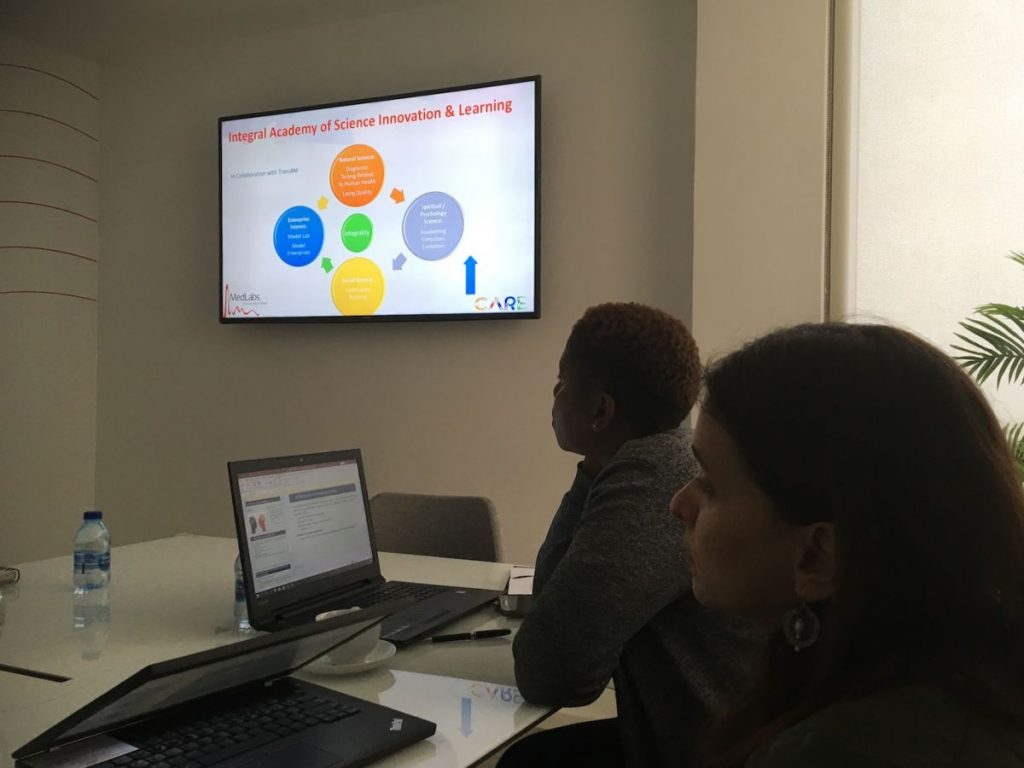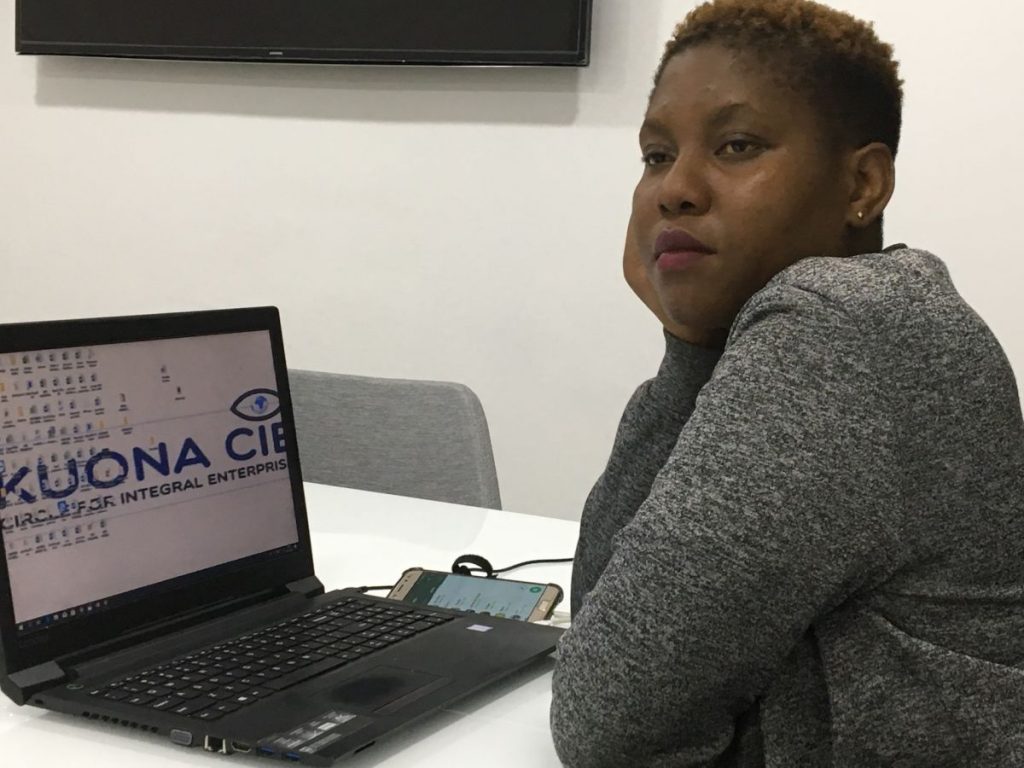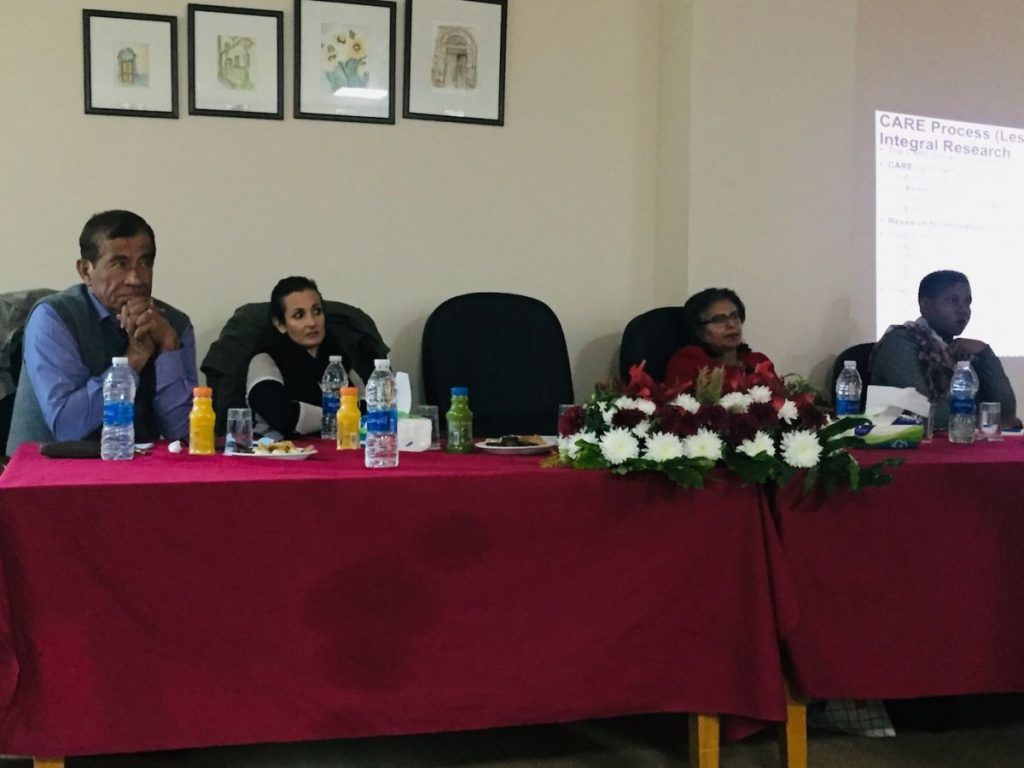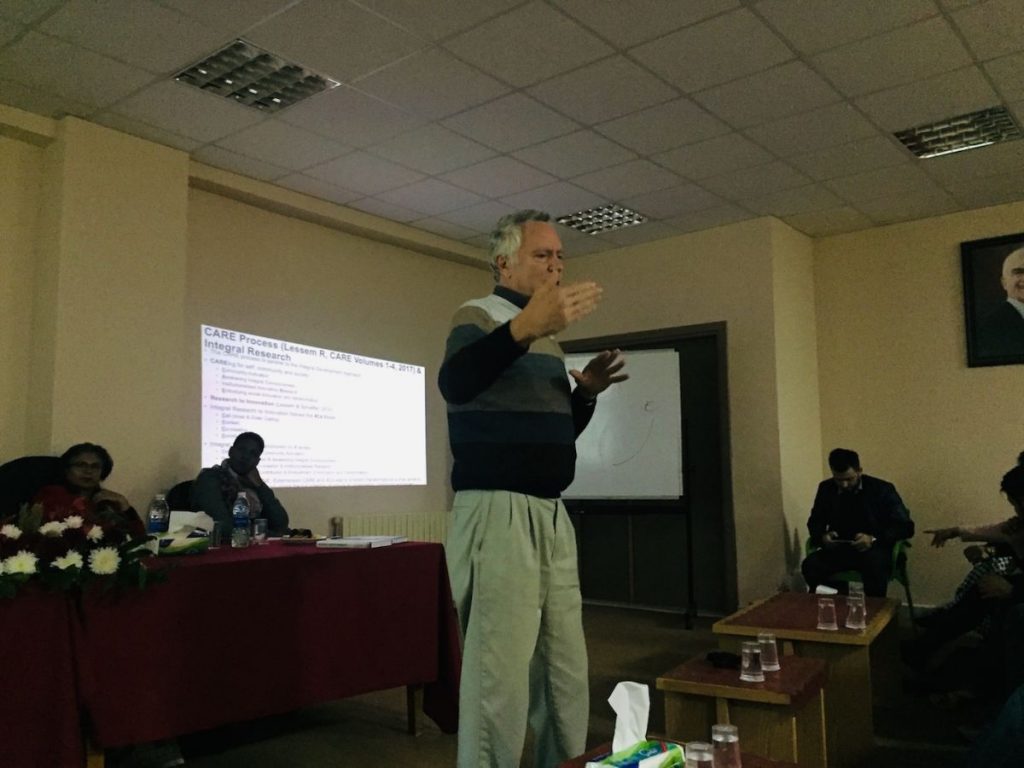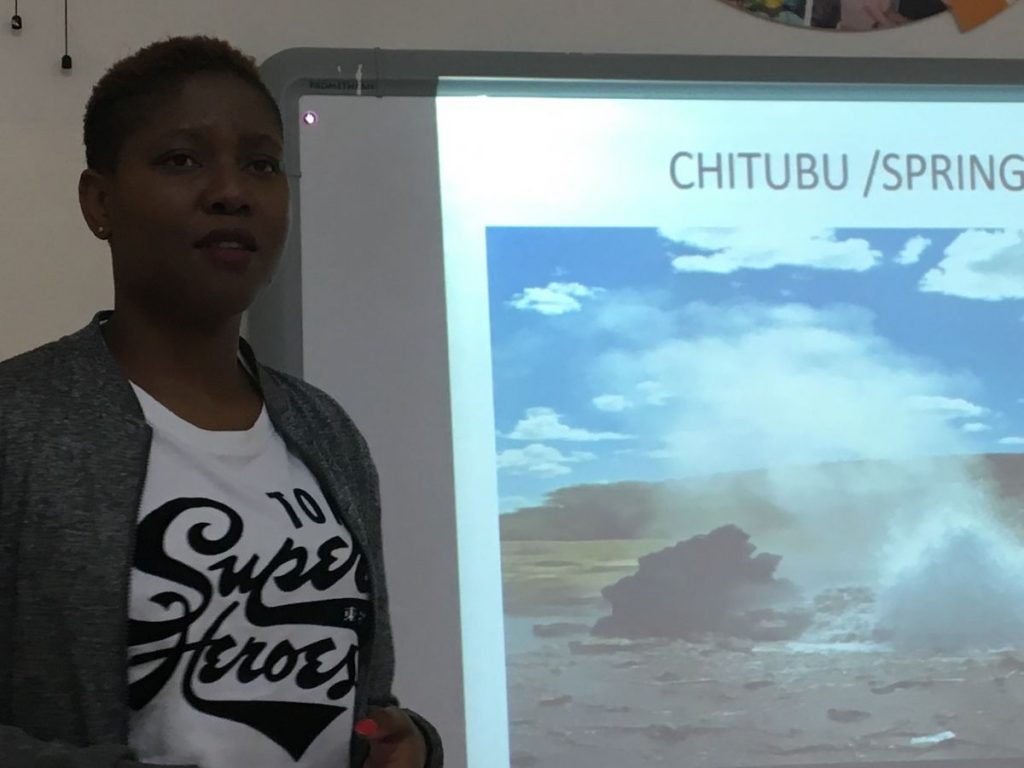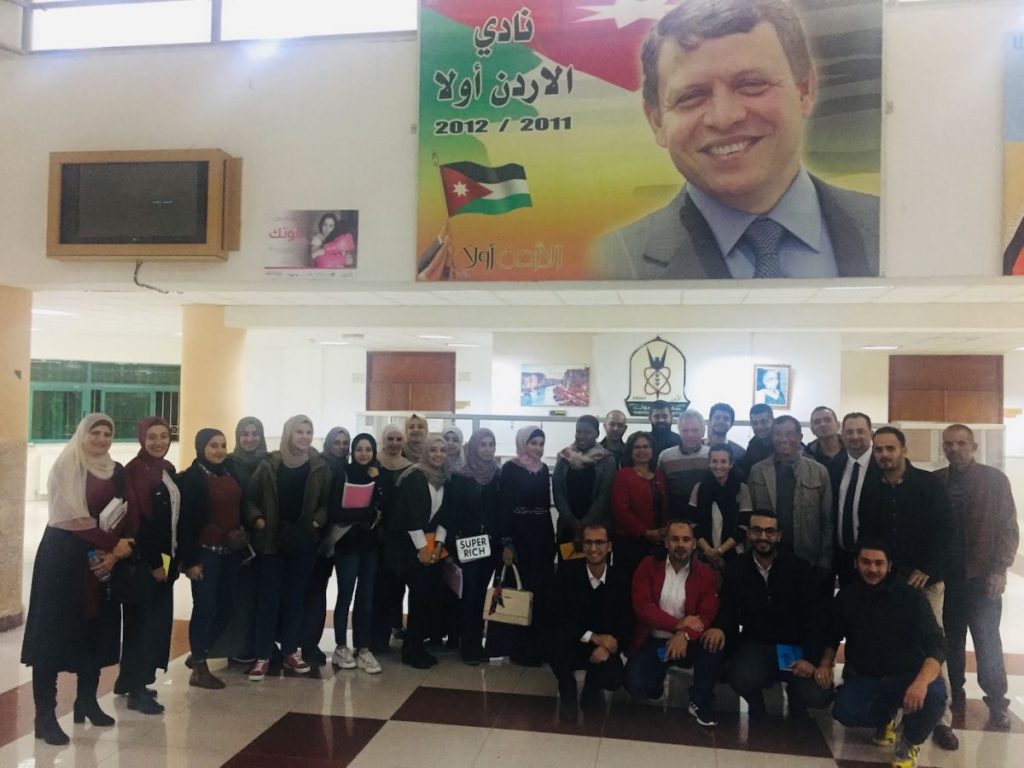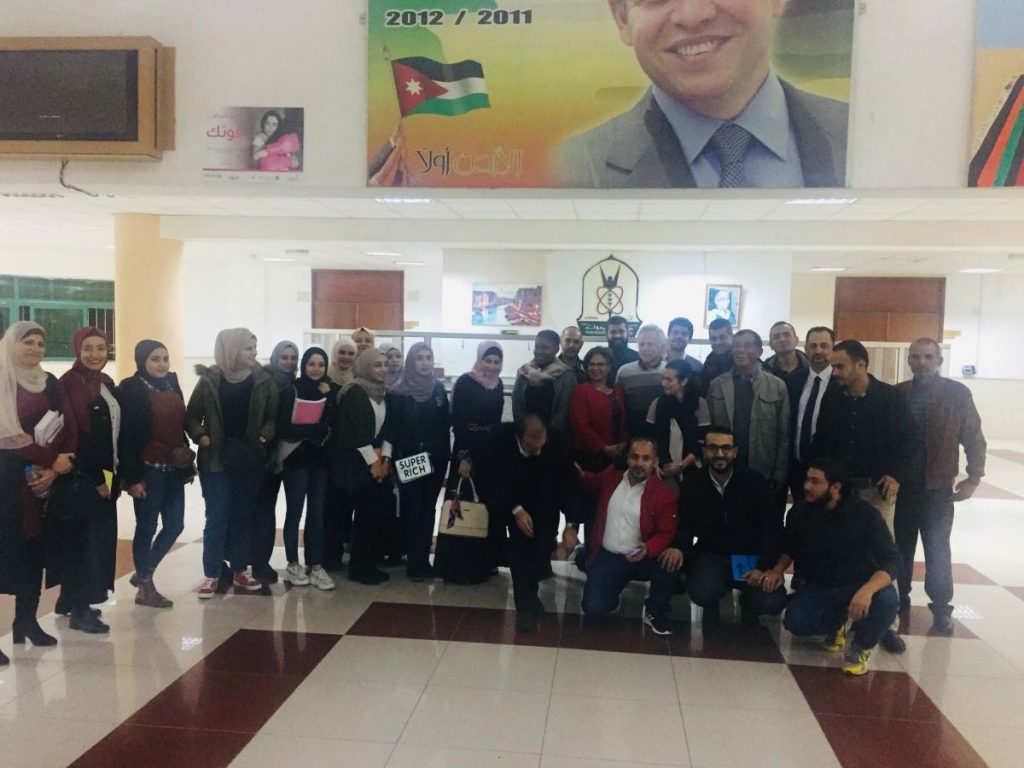Experiential PhD Module in Amman: Engaging with Integral Education, Enterprise and Society
26 November 2018: Members of the Trans4m Da Vinci Phd Program on Integral Development met in Jordan for a PhD Module and additional events, enabling them to experience and engage with a large range of emerging integral practices in Jordan – with a particular focus on education, enterprise and society.
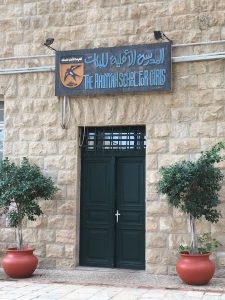 The module brought together participants from Jordan, Palestine, Pakistan, UK, Switzerland, Zimbabwe and France. Already two days prior to the module few participants were able to actively participate in the Community Engagement Roundtable of Jordan’s Tanweer Initiative. The evening prior to the module the group met, upon initiative of group member Raghda Butros, at a Community Development Initaitive lodged at Jabal Amman called Shams Community – preparing local food together under the guidance of the magnificent Jordanian cook Samira, before a sharing circle among the PhD candidates further grounded group members as a community, as well as in Amman and Jordan.
The module brought together participants from Jordan, Palestine, Pakistan, UK, Switzerland, Zimbabwe and France. Already two days prior to the module few participants were able to actively participate in the Community Engagement Roundtable of Jordan’s Tanweer Initiative. The evening prior to the module the group met, upon initiative of group member Raghda Butros, at a Community Development Initaitive lodged at Jabal Amman called Shams Community – preparing local food together under the guidance of the magnificent Jordanian cook Samira, before a sharing circle among the PhD candidates further grounded group members as a community, as well as in Amman and Jordan.
The venue for the module were the two secondary schools Ahliyyah School for Girls (ASG) and Bishop’s School for Boys (BSA), both initiating members of Tanweer, an transformational educational initiative for Jordan and the region, in which Trans4m is a core partner. Trans4m Fellow Laila Abdul Majeed, herself with ASG/BSA and part of the core group of Tanweer, welcomed the group and shared her own research-to-innovation and Integral Education, Hikma Circles and her role in Tanweer, followed by an interactive dialogue with H.E. Haifa Najjar, Superintendent of ASG and BSA, on the institutional challenges ASG, BSA and Tanweer are facing in bringing about large change to the existing educational system.
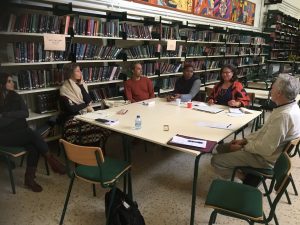 Throughout the module, participants shared their evolving research-to-innovation storylines, sharing progress and reflecting on challenges along their particular journeys. While Day 1 had a focus on Integral Education, Day 2 was dedicated to Integral Enterprise – during which we first explored in depth the emerging model of Providence Human Capital, Zimbabwe, represented in the module by Sibo Moyo; that was followed by a life visit at MedLabs, a leading medicial laboratory group in the Middle East, and a local showcase of an Integral Enterprise.
Throughout the module, participants shared their evolving research-to-innovation storylines, sharing progress and reflecting on challenges along their particular journeys. While Day 1 had a focus on Integral Education, Day 2 was dedicated to Integral Enterprise – during which we first explored in depth the emerging model of Providence Human Capital, Zimbabwe, represented in the module by Sibo Moyo; that was followed by a life visit at MedLabs, a leading medicial laboratory group in the Middle East, and a local showcase of an Integral Enterprise.
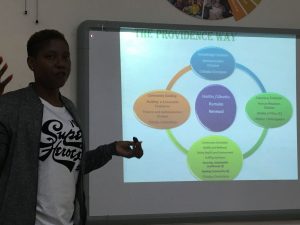 Hosted by MedLabs’s Chief Marketing and Community Building Office Zeina Sahyoun, this visit focused on the forthcoming MedLabs Academy, part of which will actively enage in evolving and teaching integrality, and in particular the Integral Enterprise approach MedLabs has developed. Conversations deeply explored the collaborative potential between MedLabs, the forthcoming MedLabs Academy, and the Akhuwat Model from Pakistan, represented by Aneeqa Malik; the Integral Enterprise Approach of Providence Human Capital, Zimbawbe; and the research-to-innovation led by PhD candidate Faraj Ghunaim, who, as future director of Human Capital of Palestine’s Al Quds Bank, is keen to work with MedLabs in exploring the Integral Enterprise approach as an institutional design for the bank.
Hosted by MedLabs’s Chief Marketing and Community Building Office Zeina Sahyoun, this visit focused on the forthcoming MedLabs Academy, part of which will actively enage in evolving and teaching integrality, and in particular the Integral Enterprise approach MedLabs has developed. Conversations deeply explored the collaborative potential between MedLabs, the forthcoming MedLabs Academy, and the Akhuwat Model from Pakistan, represented by Aneeqa Malik; the Integral Enterprise Approach of Providence Human Capital, Zimbawbe; and the research-to-innovation led by PhD candidate Faraj Ghunaim, who, as future director of Human Capital of Palestine’s Al Quds Bank, is keen to work with MedLabs in exploring the Integral Enterprise approach as an institutional design for the bank.
The third day focussed on Integral Economy and Society, and after an input on the theory and global practice of Integral Economics by Trans4m’s Ronnie Lessem and Alexander Schieffer, the emerging case of Akhuwat was presented by Aneeqa Malik, followed by the presentation of Luea Ritter, focussing on an integral approach to understand and work with “collective fields”.
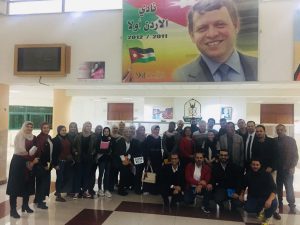 On Day 4 one part of the group went for intensive reflections on their particular and combined research-to-innovation journeys to the Dead Sea, while another part joined Trans4m Senior Fellow and Management Professor Adel Rasheed at Yarmouk University in Irbid, where the integral models of MedLabs, Akhuwat and Providence Human Capital were shared with a group of Masters Students – evoking intense interest from the students – altogether leading to an exploration of setting up a joint research academy at Irbid University.
On Day 4 one part of the group went for intensive reflections on their particular and combined research-to-innovation journeys to the Dead Sea, while another part joined Trans4m Senior Fellow and Management Professor Adel Rasheed at Yarmouk University in Irbid, where the integral models of MedLabs, Akhuwat and Providence Human Capital were shared with a group of Masters Students – evoking intense interest from the students – altogether leading to an exploration of setting up a joint research academy at Irbid University.
In summary, this module provided broad exposure to an integral Jordanian context, and experimentation of diverse modes of shared reflection, collective learning and collaboration-oriented interaction – supporting individual research-to-innovation processes, as much as exploring new possibilities of working together – between candidates, between candidates’s institutions, between our PhD candiates and Trans4m, as well as between Jordanian and international organisations.
Finally, during this module, we saw the power emerging from the interaction between individual PhD’s, the institutional PHD (Process of Holistic Development) – as per Medlabs or ASG/Bishops Schools in this case – and the individual PHD who serves as a bridge between the two.
